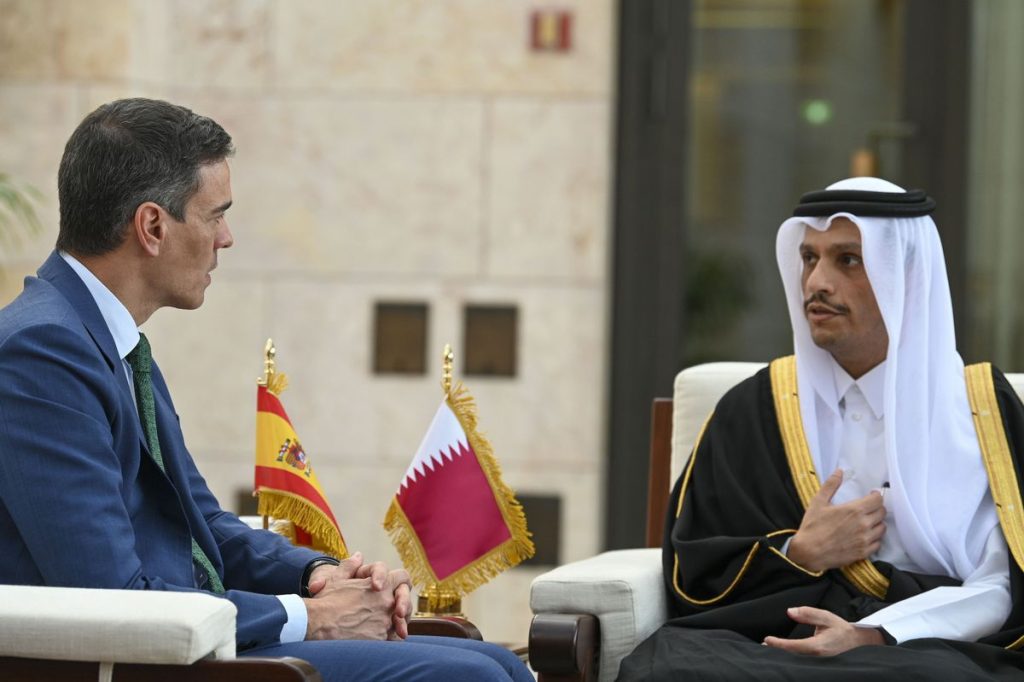Pedro Sánchez has intensified his criticism against the Israeli government led by Benjamin Netanyahu, with whom he has been in tense relations since his trip to Israel, Palestine, and Egypt last November. The latest confrontation occurred after an Israeli military attack on the NGO of Spanish chef José Andrés, resulting in seven fatalities. Sánchez, speaking with the Qatari Prime Minister Mohamed bin Abdulrahman al Zani in Doha, expressed dissatisfaction with Israel’s explanations, demanding a detailed clarification for the bombing and hinting at possible diplomatic actions by Spain.
During his three-day tour of the Middle East, Sánchez gained support from Arab nations for his clear stance on calling for a ceasefire and announcing Spain’s readiness to recognize the State of Palestine before the summer. He emphasized the importance of establishing a Palestinian state based on the 1967 borders with East Jerusalem as its capital. Sánchez also urged Arab countries like Qatar and Saudi Arabia to recognize Israel, advocating for a two-state solution and expressing his commitment to supporting Palestine’s full membership in the United Nations.
Upon his return to Madrid, Sánchez acknowledges the growing tension with Netanyahu and closer ties with Arab countries, notably Qatar and Egypt, who are key mediators in the conflict between Israel and Hamas. Despite achieving his goal of increasing influence in the region, there is a sense of deep concern within the Spanish President’s team regarding the escalating situation in Gaza and the risk of broader regional conflict, particularly highlighted by recent events involving Iran and Syria. Sánchez and al Zani spoke openly about the possibility of regional escalation.
Sánchez highlighted the worsening situation in Gaza since his visit to the region last November, citing an increase in casualties and ongoing violence with significant risks of regional escalation. He expressed hope in the growing international support for a ceasefire, including a UN resolution and efforts within the EU. Sánchez emphasized the urgency of ending the conflict to prevent further violence and potential spread to neighboring countries such as Lebanon, Syria, and Iraq, emphasizing the fragility of regional dynamics and the need for a ceasefire.
The Qatari leader echoed Sánchez’s concerns about violence spreading beyond Palestinian territories and highlighted violations of international law, particularly regarding access to humanitarian aid. Both leaders condemned the use of food as a weapon of war and expressed frustration with the silence of the international community in the face of ongoing conflicts. Sánchez’s departure from the region reflects a shifting position towards closer ties with Arab nations and strained relations with Israel, as he acknowledges the possibility of a diplomatic conflict which Israel has previously suggested with Spain, a scenario that La Moncloa had so far dismissed.















